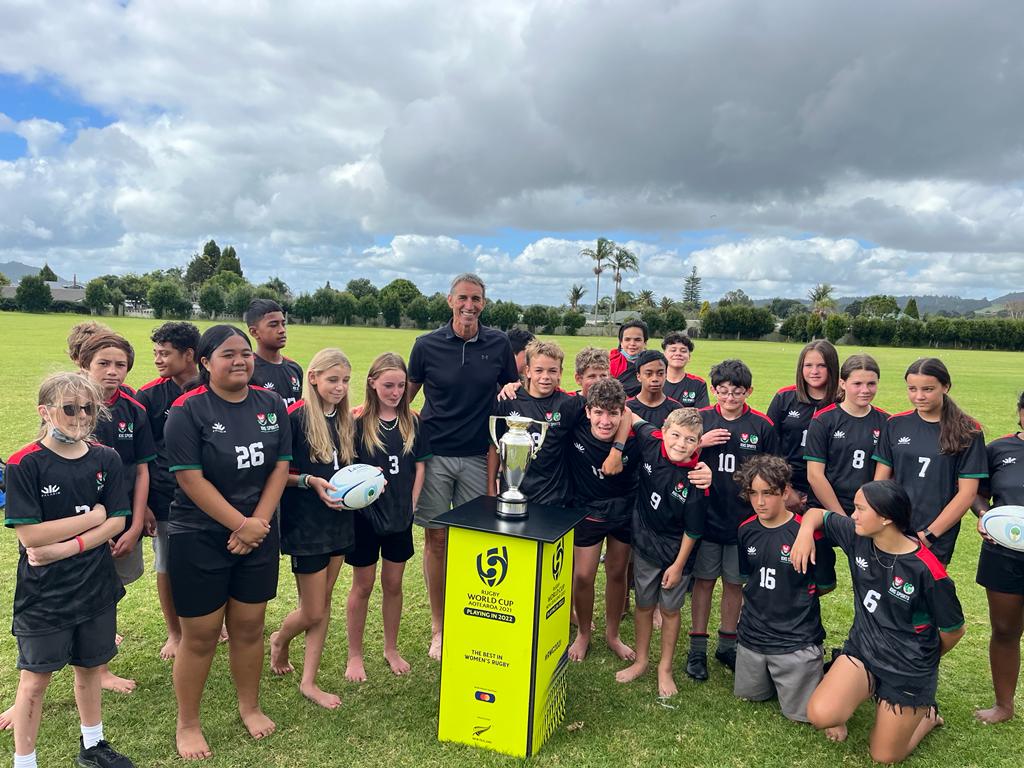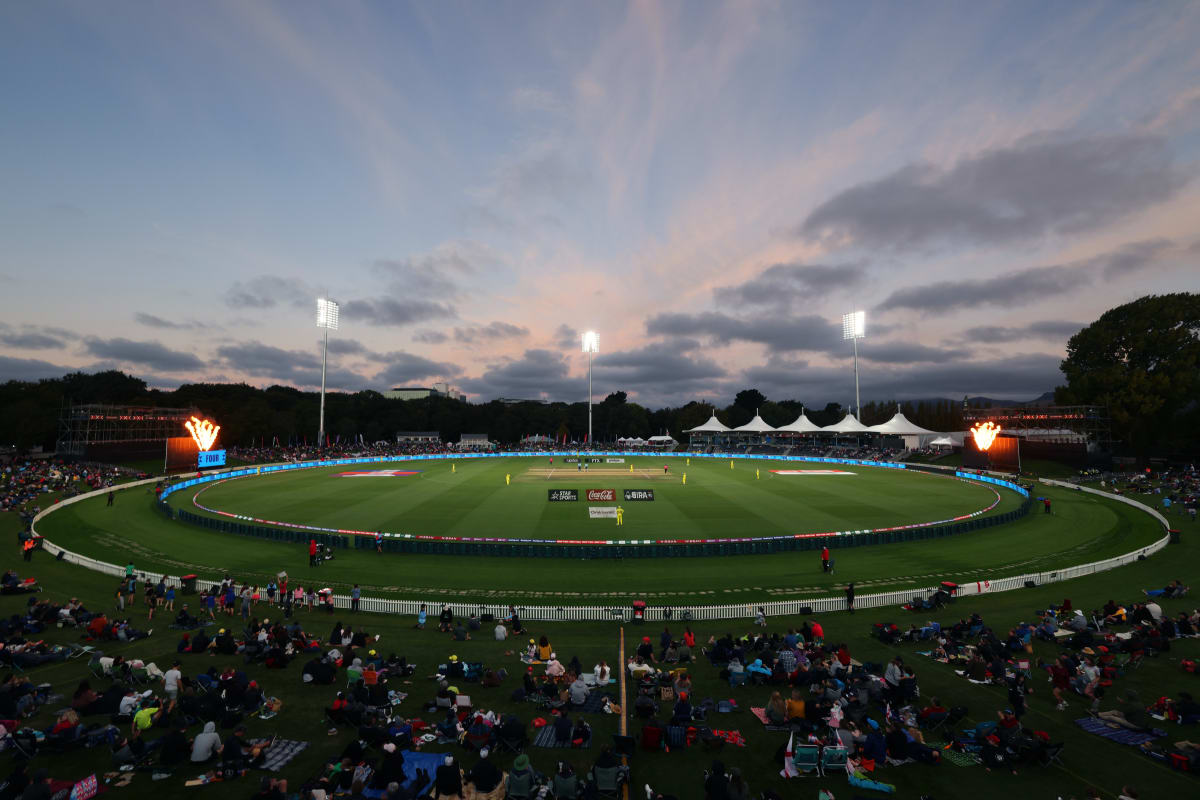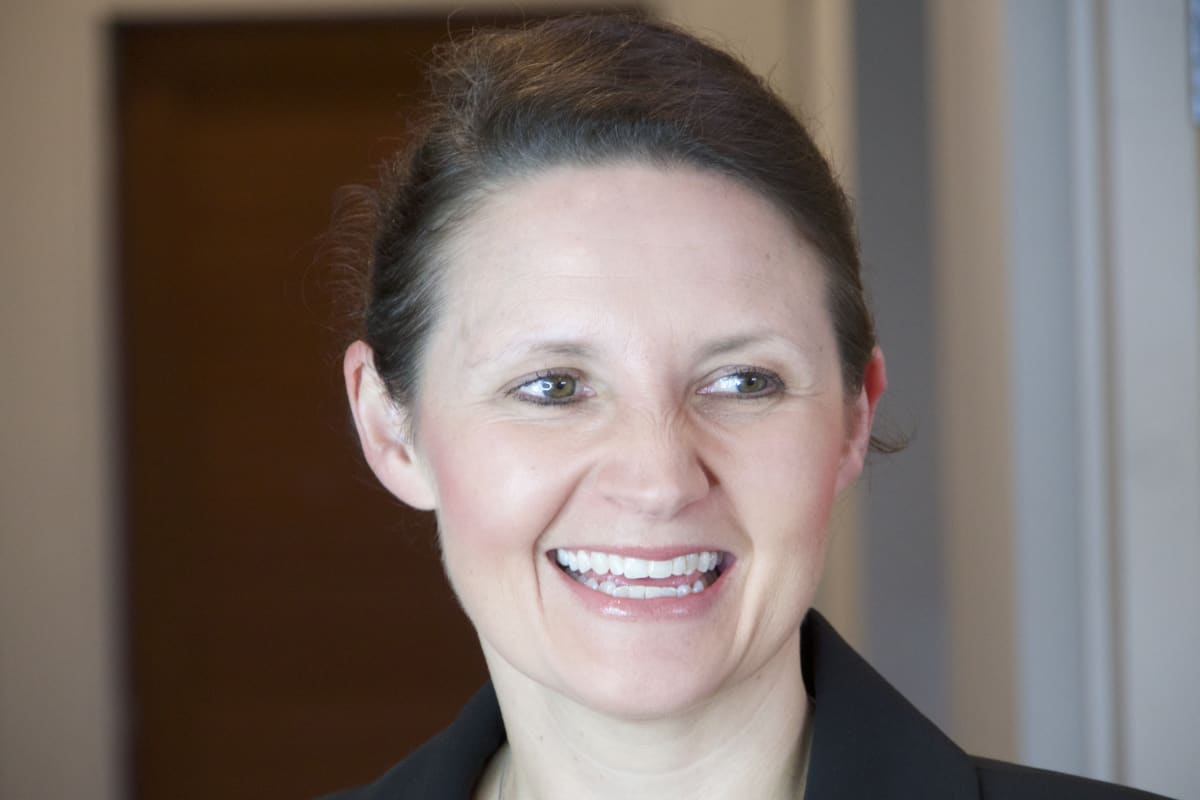
Girls throughout Aotearoa and the South Pacific are getting up close and personal with Nancy, the coveted Rugby World Cup trophy, while the tournament continues to evolve, with help from its cricketing peer.
A queue of young girls, kitted out in their Black Ferns and club jerseys, waited excitedly to have their photo taken with Nancy.
A photo John Hall hopes will leave a lifelong impression on them.
Nancy, the Rugby World Cup trophy affectionately named by the Black Ferns after Kiwi World War II hero Nancy Wake, is getting around the country.
Her latest stop was the very first ‘girls only’ holiday programme put on by Counties-Manukau Rugby.
There were 21 girls from under eights to under 13s who went through the three-day programme at Pukekohe Stadium (for once, there was no rugby holiday programme for boys).
It was run by Hall, whose role is community rugby champion in charge of growing the girls’ game in Counties-Manukau, and concentrated on tackle safety and breakdown drills - two areas that often deter girls from playing.
Hall has a personal reason for being passionate about girls’ rugby. “I want to create a better pathway for my two daughters if they ever want to play,” he says.
Black Ferns Eloise Blackwell and Charmaine McMenamin and players from the Counties-Manukau Heat helped out during the week, and gave the girls a glimpse of a day in their rugby careers. And then Nancy arrived.

“We were so lucky to give this opportunity to girls who aspire to be Black Ferns, to have a photo taken with the Rugby World Cup, to have that special moment,” Hall says.
“They might forget everything we taught them this week. But if they take away those memories of seeing the World Cup, keep those photos forever and want to be Black Ferns one day, I’ll be happy.”
Hall still has his own unforgettable photo from when he was their age - when the men’s RWC trophy visited his hometown in Wales before the 1999 World Cup.
Over the next five months, Nancy will make at least 40 stops in every corner of the country - including Stewart Island and the Chathams - and travel to five Pacific Island nations before the tournament starts in October. The trophy dropped into the Black Ferns camp in Christchurch last weekend.
Tournament director Michelle Hooper will make it to some of those stops, too. But she’s now at the “business end” of organising the month-long world championship, the first played on New Zealand soil.
In keeping with the alliance of the female leaders of the Big Four - the four major women’s sports events being hosted here in 2022 and 2023 - Hooper has been swapping notes with her cricket counterpart, Andrea Nelson, CEO of the successful Cricket World Cup 22 that finished three weeks ago.
Hooper went to two of the CWC22 games, and has since been able to implement some of what she saw into the Rugby World Cup plans.
“I thought the [cricket] tournament was brilliant. Especially when you know the back story to what went on behind the scenes,” she says. “It still gives me goosebumps when I think about the journey they went on to deliver that.
“Andrea describes it as being on a turning tide, but being on the wrong side of that tide. Every decision that was made relating to Covid impacted their planning right at the point they were implementing it all.
“So being able to see what happened behind the scenes, then watch what was delivered … it was an outstanding success.”

Hooper went to Christchurch for the CWC22 final, to support Nelson and her team, and get more of an insight into running a major event with full crowds, while still in a pandemic.
“That final was the greatest testament. What really resonated with me was that it was an Australia-England final, and it was a sell-out match,” she says.
“It was truly like you’d walked into an international environment. It wasn’t your standard cricket match - there was energy, colour, a festival feeling, kids playing sport. That’s what international events are - a moment in time you just don’t get again.
“The final was fortunately a snapshot for us of what’s to come.”
Hooper acknowledges the Rugby World Cup is in a much better position - now New Zealand’s borders are open to international travellers and full crowds are allowed in stadiums again.
“For rugby, it’s all lining up now. The borders are open for the teams to come in, as well as the international stakeholders, fans, families and media. But most importantly, New Zealanders will be able to fill the stands,” she says.
There are around 150 days to go until the 11 teams arrive in the country, and tickets are now on sale for all games, to be played in Auckland and Whangārei.
“I really trust Kiwis to seize the moment,” says Hooper, who's working on her fourth Rugby World Cup. “One of the things we saw with the Cricket World Cup was they stopped promoting their ticket sales [when New Zealand went into the Covid Red light setting]. That was a real shame because the awareness wasn’t there.
“We’ve flagged that across the board - the importance of both marketing tickets and promoting the tournament. They both have to happen for it to be a real success.”

Hooper also wants to replicate the carnival-like atmosphere from cricket’s grand final.
“We’re going to have triple-header match days, three games back-to-back. So having an experience for kids in the venue is key,” she says.
“The TV cameras kept zooming in on the kids playing on the banks or playing cricket. So I came back to the team and said ‘We have to make that kids' experience great - even if it’s a rugby ball and kids running around, it will be fine’.
“Two of our venues, Waitakere Stadium and Northland Events Centre, have amazing banks. So let’s make that a feature, let’s have a box slide. If parents are watching their kids, have a big screen so they can watch the rugby as well. If they stay longer, then everyone is winning.”
Ticket packs have now been launched: Fans can buy a team pack for every game their chosen team plays, or a venue pack for Eden Park, Waitakere Stadium or Northland Events Centre.
“Take Eden Park for example - you can hold in your hand a ticket to the opening match day, the semifinals and the finals, and you don’t have to go into a ballot,” says Hooper. The cost for a pass to all three days: $70-$130 for adults; $15-$30 for kids.
“Affordability and accessibility is so important for our tournament, and these are the first examples of that.”

Even as regulations around the pandemic ease off, the tournament remains in a state of change.
“You are constantly evolving your plans, and constantly managing expectations of stakeholders,” Hooper says.
“Although everything is looking so much better, you’ve been in a certain mindset going through this with the borders shut; now all of a sudden, everything changes and you have to be able to deliver what people expect because everything has changed.”
Hooper still wants to achieve a world record on day one of the tournament – a triple-header at Eden Park on October 8. The current world record is around 20,000 set in France at the 2014 Rugby World Cup final - Hooper is aiming for 45-48,000.
“Our team’s focus is to deliver the best Rugby World Cup ever. If anything motivates me more, it’s the stories that have gone on before with all the hardship. There’s a lot of change happening for the women's game, and I see all that at New Zealand Rugby - but it’s never going to be as quick as everyone wants it to be.
“I want the Black Ferns to have the best chance of succeeding in a Rugby World Cup here, so we’re going to give them the best platform.
“I often think of it like this: We are coming out of the tunnel in the darkness and walking into the light. It’s a metaphor for women’s sport. Women’s rugby is going into the spotlight. It’s their moment in time to shine.”







